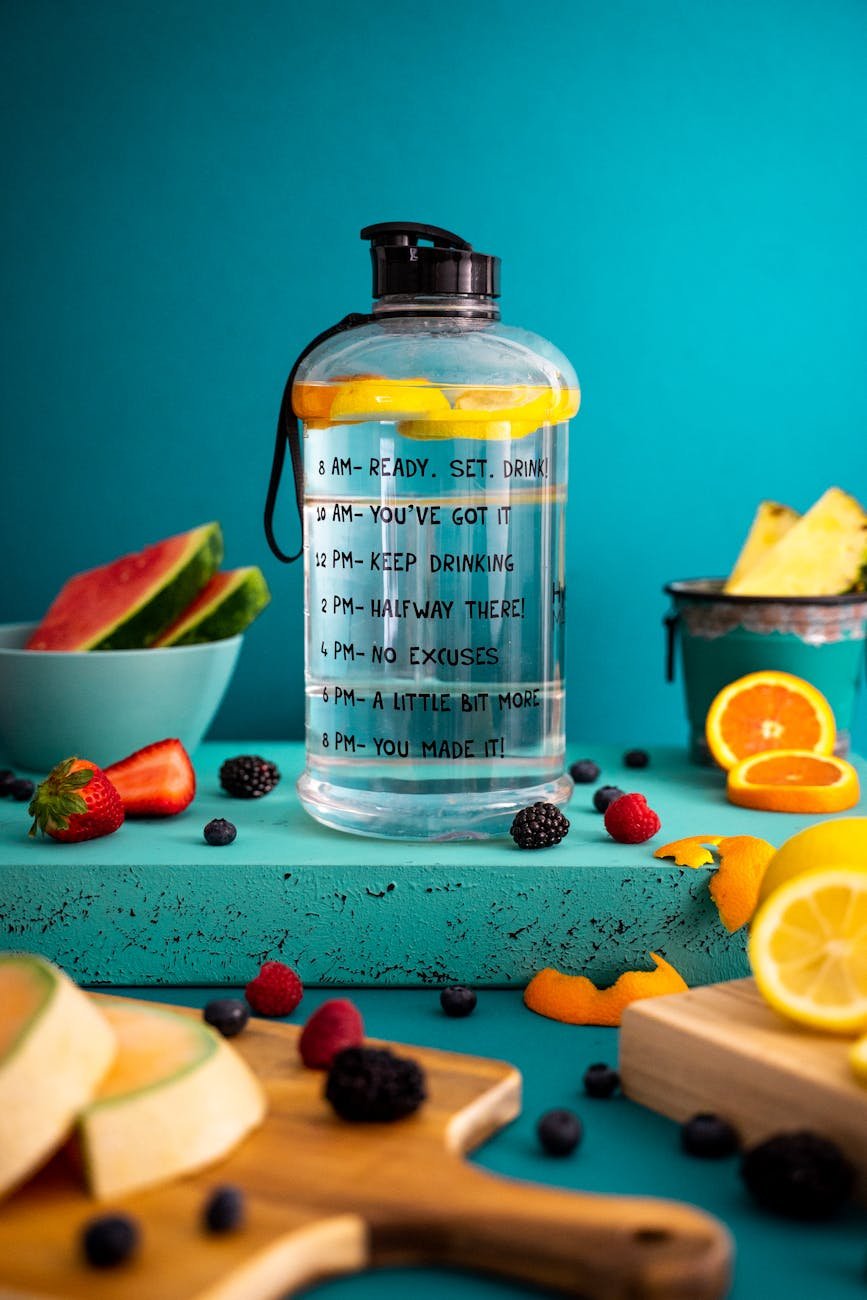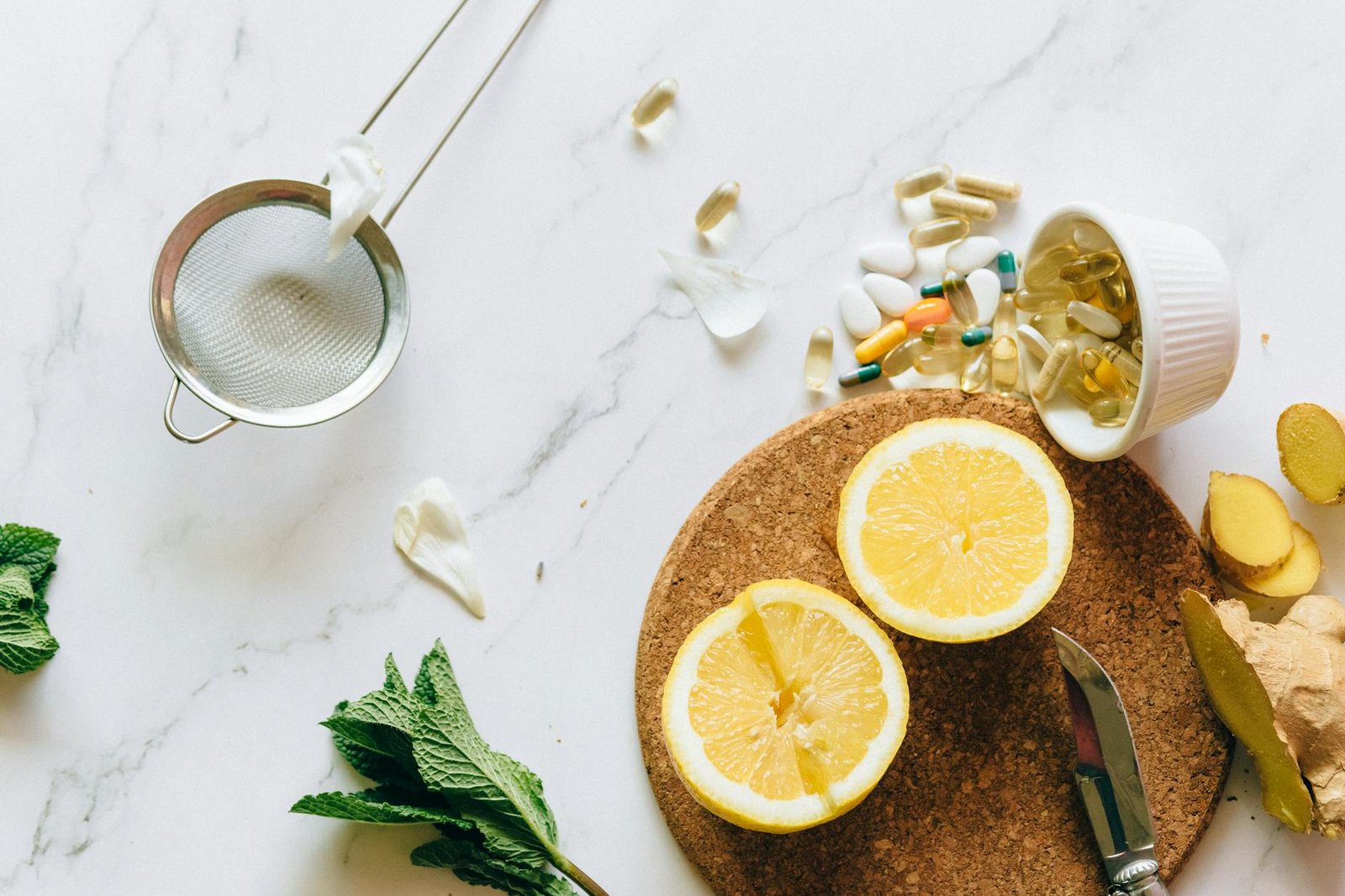When cold and flu season hits, you may be looking for quick cold remedies to help ease your symptoms. While over-the-counter medications can be effective, many people turn to nature’s solutions for relief. Natural remedies like herbal teas, vitamins, and essential oils can work wonders in soothing your body and boosting your immune system. However, it’s important to know the best ways to use them and when to rely on professional medical care.
In this guide, we’ll explore a variety of quick cold remedies that can provide comfort during sickness. From vitamin C-rich fruits to soothing warm baths, these methods can ease discomfort, speed up recovery, and help you feel better faster. By integrating these natural solutions into your routine, you can enhance your immune system and stay resilient throughout the cold and flu season.
Do: Add Vitamin C-Rich Fruits for Natural Cold and Flu Relief
Vitamin C is a powerhouse for immune support, making it an essential part of your quick cold remedies. Adding Vitamin C-rich fruits can give your body the boost it needs to fight off infections more effectively. Not only are these fruits tasty, but they’re also packed with antioxidants that strengthen your immune system and help speed up recovery.
Citrus Fruits: Oranges, Grapefruits, and Lemons
When it comes to Vitamin C, citrus fruits are your go-to! Oranges, grapefruits, and lemons are loaded with this essential vitamin, making them perfect for quick cold remedies. Plus, their refreshing flavors are an added bonus. Try having fresh orange juice in the morning or adding a squeeze of lemon to warm water for a gentle, immune-boosting drink.
Tropical Fruits: Pineapple and Mango
For something more exotic, pineapple and mango are both high in Vitamin C. Pineapples also contain bromelain, an enzyme with anti-inflammatory properties that can help soothe sore throats. Mangoes, meanwhile, are not only delicious but also full of fiber, which supports digestion and overall health during flu season.
Berries: Strawberries, Blueberries, and Blackberries
Berries might be small, but they’re mighty when it comes to boosting immunity. Strawberries, in particular, are surprisingly high in Vitamin C, making them a great choice for quick cold remedies. Blueberries and blackberries are also rich in antioxidants, which fight inflammation and support faster healing. Try adding a handful of mixed berries to your breakfast or smoothie for a nutritious start to your day.
Kiwis: A Tiny but Mighty Source of Vitamin C
Kiwis are often overlooked, but they pack more Vitamin C than an orange! Their sweet-tart taste makes them a refreshing option, especially for kids. Besides boosting immunity, kiwis contain fiber and other nutrients that support digestive health, which can sometimes be disrupted when you’re fighting off illness.
Papaya: More Than Just a Tropical Treat
Papaya is another tropical fruit with an impressive Vitamin C content. It’s also rich in folate and potassium, which help your body recover and stay hydrated. Try adding fresh papaya to your diet during flu season for an extra nutrient boost.
Incorporating these Vitamin C-rich fruits into your daily routine is a simple, natural way to support your immune system. They’re easy to add to meals or enjoy as snacks, making them an enjoyable and effective addition to your cold and flu remedies toolkit.
Don’t: Ignore Hydration Needs During Cold and Flu
Staying hydrated is one of the simplest yet most crucial quick cold remedies. When you’re sick, your body needs extra fluids to fight infection and manage symptoms. Ignoring hydration can worsen dehydration, which can lead to fatigue, headaches, and even prolonged recovery.

How Dehydration Worsens Symptoms
When you’re dehydrated, your mucus thickens, making it harder to clear congestion. Thicker mucus can also trap bacteria, increasing the risk of secondary infections. Additionally, dehydration puts extra stress on your immune system, making it harder for your body to fight off the virus.
Fluids to Prioritize
For quick cold remedies, reach for water, herbal teas, and clear broths. These help replenish fluids without adding unnecessary sugar or caffeine. Plus, warm herbal teas with honey can soothe sore throats, providing extra comfort and hydration.
Avoid Caffeinated and Sugary Drinks
Though tempting, drinks with caffeine or high sugar content can contribute to dehydration. Caffeine is a diuretic, which means it can make you lose more water. Sugary drinks might give you a quick boost, but they can also cause energy crashes, which isn’t helpful when you’re already low on energy.
Electrolytes Can Help
Sometimes, your body loses electrolytes through sweating and fever, which can worsen dehydration. Replacing lost electrolytes with drinks like coconut water or electrolyte-enriched water can be beneficial, especially if you’re experiencing fever. Just make sure these options are low in added sugars.
Hydration and Recovery
Proper hydration supports your body’s natural healing processes, helping flush out toxins and reducing headaches and muscle fatigue. Staying hydrated can also reduce dry mouth, which can help prevent bacteria buildup in your throat.
Incorporating hydration as part of your quick cold remedies keeps your body functioning at its best. Drink fluids throughout the day to keep symptoms at bay and support a faster recovery.
Do: Use Eucalyptus for Congestion Relief
Eucalyptus is one of the best quick cold remedies for congestion relief. This powerful essential oil comes from eucalyptus leaves and has been widely used to ease breathing. When you’re stuffed up, eucalyptus can help open up airways and promote relaxation.

Benefits of Eucalyptus for Cold Symptoms
Eucalyptus contains compounds that act as natural decongestants. Its active ingredient, eucalyptol, can help thin mucus, making it easier for you to breathe. Furthermore, eucalyptus is known for its soothing, anti-inflammatory properties, which can ease irritated nasal passages and reduce coughing.
How to Use Eucalyptus for Cold Relief
To use eucalyptus effectively, try adding a few drops to a bowl of hot water. Then, lean over the bowl with a towel draped over your head and breathe in the steam. This steam inhalation method helps the eucalyptus reach your nasal passages and throat, providing immediate congestion relief.
Eucalyptus Oil in a Diffuser
If you have a diffuser, add a few drops of eucalyptus oil and let it work its magic. The gentle release of eucalyptus vapor fills the room, making it easier for everyone to breathe. It’s a perfect option for bedtime, as it can help you relax and get a better night’s sleep.
Eucalyptus Balm for On-the-Go Relief
Another handy option is eucalyptus balm, which you can apply to your chest or under your nose for relief. A small dab provides a cooling effect, which can help you breathe easier during the day.
Cautions with Eucalyptus Use
Though eucalyptus is effective, be cautious not to overdo it. Just a few drops are enough—too much can be overwhelming. And remember, eucalyptus oil is highly concentrated, so keep it away from young children and pets.
Adding eucalyptus to your quick cold remedies is a smart, soothing way to tackle congestion.
Don’t: Overuse Antibiotics for Cold and Flu Relief
It’s tempting to turn to antibiotics when you’re feeling miserable with cold and flu symptoms, but it’s usually not the answer. Antibiotics are designed to fight bacterial infections, not viral ones. Colds and the flu are caused by viruses, so antibiotics won’t help and could even lead to unwanted side effects.
Why Antibiotics Don’t Work for Colds and Flu
Antibiotics target bacteria, but cold and flu viruses don’t respond to them at all. Overusing antibiotics when you don’t need them can disrupt your body’s natural balance, and even worse, it contributes to antibiotic resistance. This can make actual bacterial infections harder to treat in the future.
Risks of Overusing Antibiotics
Using antibiotics when they aren’t necessary can have unintended consequences. For one, it may lead to antibiotic resistance, making common infections harder to treat over time. Additionally, antibiotics can kill off beneficial bacteria in your body, which can lead to digestive issues and a weaker immune system.
When Antibiotics Might Be Needed
In some cases, antibiotics may be necessary, like when a secondary bacterial infection occurs with a viral illness. If you develop symptoms like persistent fever, sinus pain, or worsening cough, consult your doctor. They’ll help you determine if antibiotics are appropriate or if quick cold remedies are your best choice.
Focus on Quick cold remedies First
Instead of antibiotics, opt for quick cold remedies that can actually help with viral symptoms. Rest, hydration, and nutrient-rich foods are simple but powerful ways to support your immune system.
In short, save antibiotics for when they’re truly needed. Embracing quick cold remedies can be a safer, more effective choice for viral infections.
Do: Warm Salt Baths for Body Aches
When your body aches from a cold or flu, a warm salt bath can work wonders. The soothing warmth relaxes tense muscles, helping ease that uncomfortable, heavy feeling. Salt baths, especially with Epsom salts, are a simple but effective way to provide quick cold remedies right at home.

How Warm Salt Baths Relieve Aches
The heat from the bath boosts circulation, bringing more oxygen to sore areas. This helps reduce muscle pain and speeds up the healing process. Epsom salts add extra relief by delivering magnesium through the skin, which is known for its anti-inflammatory properties.
Adding Epsom Salt to Enhance the Effect
For best results, add about two cups of Epsom salts to a warm bath. Epsom salts aren’t only for muscle relief—they can also help detoxify the body, promoting overall wellness. If you want a bit more luxury, toss in some essential oils like eucalyptus or lavender, which can help with congestion and relaxation.
Tips for Maximizing Your Bath’s Benefits
Try to soak for at least 20 minutes to give your muscles time to relax and absorb the benefits. Adding a few drops of eucalyptus oil can help clear your sinuses while you relax. Lavender oil also creates a calming effect, perfect for winding down before bed. Don’t forget to hydrate afterward to replace lost fluids and keep your body feeling its best.
Make Warm Baths Part of Your Quick Cold Remedies
Regular salt baths can be a soothing ritual during a cold, providing comfort and relieving those nagging aches. Plus, they encourage you to slow down and rest, which is essential for recovery. So, take this time to pamper yourself while easing the discomforts of cold and flu.
Don’t: Consume Too Much Sugar
When you’re sick, sugary treats can be tempting, but consuming too much sugar can work against you. Excess sugar can suppress your immune system, making it harder for your body to fight off infection. That’s why cutting back on sugar is one of the most helpful quick cold remedies you can try.
How Sugar Impacts Immunity
Research shows that high sugar intake hinders white blood cell function. White blood cells are your body’s defense team, attacking invaders like viruses. When they’re impaired, they can’t work as effectively. Plus, a sugary diet can increase inflammation, which may worsen cold and flu symptoms.
Simple Swaps to Reduce Sugar as Quick Cold Remedies
To avoid sugar’s immune-suppressing effects, try replacing sweets with whole fruits like berries or oranges. They offer natural sweetness plus immune-boosting vitamins. If you’re craving something comforting, swap sugary drinks with herbal teas or warm lemon water with honey.
Focus on Nutrient-Rich Foods Instead
The best quick cold remedies include nutrient-rich foods, so aim for balanced meals with lean proteins, vegetables, and whole grains. These foods provide steady energy without the immune-suppressing effects of sugar. Your body will thank you, as it has the nutrients it needs to heal.
Why Avoiding Sugar Supports Recovery
Reducing sugar helps your immune system function optimally. Instead of adding to your discomfort, it empowers your body’s defenses. So next time you’re tempted by sweets, remember that avoiding them is a simple yet powerful step to feeling better faster.
Do: Choose Natural Throat Soothers
When it comes to soothing a sore throat, quick cold remedies can work wonders. Instead of reaching for artificial cough drops, try natural options like honey or herbal lozenges. These options not only taste great but also offer a gentle way to ease throat discomfort.

Honey as a Soothing Solution
Honey is one of the most effective quick cold remedies. It coats the throat, reducing irritation, and has mild antimicrobial properties that help fight infection. A spoonful of honey in warm tea or water can make a huge difference, easing soreness and providing comforting warmth.
Herbal Lozenges for Relief
Herbal lozenges are another excellent choice for sore throats. Many contain ingredients like menthol, eucalyptus, and slippery elm, which provide relief and support healing. These natural lozenges are gentle on your body and avoid the artificial additives found in many commercial throat drops.
Soothing Teas and Herbal Infusions as Quick Cold Remedies
Warm, soothing teas are also perfect for sore throats. Chamomile tea, for example, is both anti-inflammatory and calming, helping reduce throat pain. Ginger tea adds warmth, stimulates circulation, and can help relieve sinus congestion—a bonus when dealing with cold and flu symptoms.
Why Natural Throat Soothers Are Beneficial as Quick Cold Remedies
Choosing natural remedies for your throat ensures you avoid chemicals that might not benefit your body. They’re gentle yet effective, helping ease symptoms without adding stress. With these soothing options, you’re not just managing symptoms; you’re also supporting your body’s natural healing process.
Don’t: Skip Nutritious Meals
When you’re feeling under the weather, it can be tempting to skip meals. However, this is one of the biggest mistakes you can make when managing cold and flu symptoms. Even if your appetite is low, nourishing your body with balanced meals can make a significant difference in your recovery.
The Importance of Nutrition During Illness
Your body needs fuel to fight off infections. Quick cold remedies are most effective when paired with the right nutrition. Eating nutritious foods helps maintain energy levels and supports your immune system. For instance, vitamin C-rich fruits like oranges and strawberries help strengthen your immune defenses, making it easier for your body to combat illness.
What to Eat When Appetite Is Low
When you’re struggling with low appetite, opt for small, frequent meals. You don’t need to force yourself to eat a full plate. Instead, focus on lighter, nutrient-dense foods like soups, broths, and smoothies. These meals are easy on the stomach and still pack plenty of vitamins and minerals that support your body’s healing.
The Power of Hydration and Nutrition Combined
Hydration is also crucial, especially when you’re sick. It’s essential to stay hydrated to help thin mucus and reduce congestion. Combine hydration with small portions of nourishing food to give your body the balanced support it needs. This combination can make a huge difference in how quickly you bounce back from your cold or flu.
Why Skipping Meals Can Worsen Symptoms
Skipping meals when sick can lower your body’s energy, making it harder to recover. In addition, it can weaken your immune system, which is the last thing you want when fighting off a virus. Remember, the best quick cold remedies include proper nutrition to support your body’s healing process.
Recognizing when it’s time to consult a healthcare provider
When quick cold remedies aren’t enough, it’s important to know when to seek professional help. While home remedies can help alleviate mild symptoms, there are times when they simply aren’t enough. For instance, if you experience a persistent fever that lasts more than a few days, it may be a sign of a more serious infection. Similarly, if you notice your symptoms worsening instead of improving, it’s best to reach out to a healthcare provider for advice.
In some cases, quick cold remedies may help with symptoms like sore throat, congestion, and fatigue. However, if you experience shortness of breath, chest pain, or a severe headache, these could be warning signs of complications, such as pneumonia or bronchitis. In such situations, it’s essential to consult a healthcare professional who can offer appropriate treatment.
It’s also important to recognize when your body isn’t responding to natural treatments. For example, if your symptoms last for weeks or if you’re not improving despite trying multiple remedies, you might be dealing with something more than a typical cold or flu. Consulting a healthcare provider can help you receive the necessary care to recover and prevent further health risks.
In conclusion, while quick cold remedies can be incredibly helpful, it’s crucial to listen to your body. If your symptoms are severe or persistent, don’t hesitate to seek professional medical advice.

